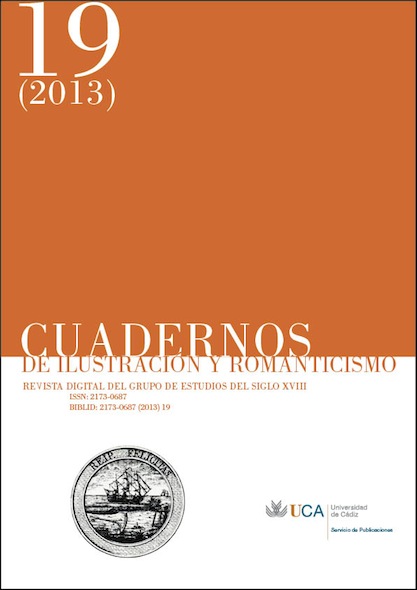Short plays as a vehicle for anti-French propaganda

DOI
https://doi.org/10.25267/Cuad_Ilus_Romant.2013.i19.09Info
Abstract
The study of fourteen short plays staged in the theaters of the most important Spanish cities during the War of Independence (1808-1813) shows that these popular writers were well aware of the enormous propagandistic influence the genre could exercise on the general public. The playwrights use all types of stylistic devices to excite patriotic fervor in the fight against the invader. They do not hesitate to portray the French as representatives of the forces of evil while the Spanish cause receives divine protection. Napoleon is accused of being a tyrant and Godoy, a traitor. But, most importantly, Joseph Bonaparte, the Intruder King, is portrayed as a vice-riden man supported by a group of pro-French collaborators. Conversely, Ferdinand VII, the legitimate sovereing, is haracterized as a martyr who has been cruelly deceived by the Emperor and who must be freed from his ignominious captivity in order to reclaim the Spanish throne.
Keywords
Downloads
How to Cite
License

This work is licensed under a Creative Commons Attribution-NonCommercial-NoDerivatives 4.0 International License.
The papers published in this journal are the property of Cuadernos de Ilustración y Romanticismo: the source must be cited whenever they are used.
The authors retain the copyright © and grant the journal the right to publish. They may host their work in the final published version on personal websites or websites intended for scientific dissemination, provided that they indicate the source.






